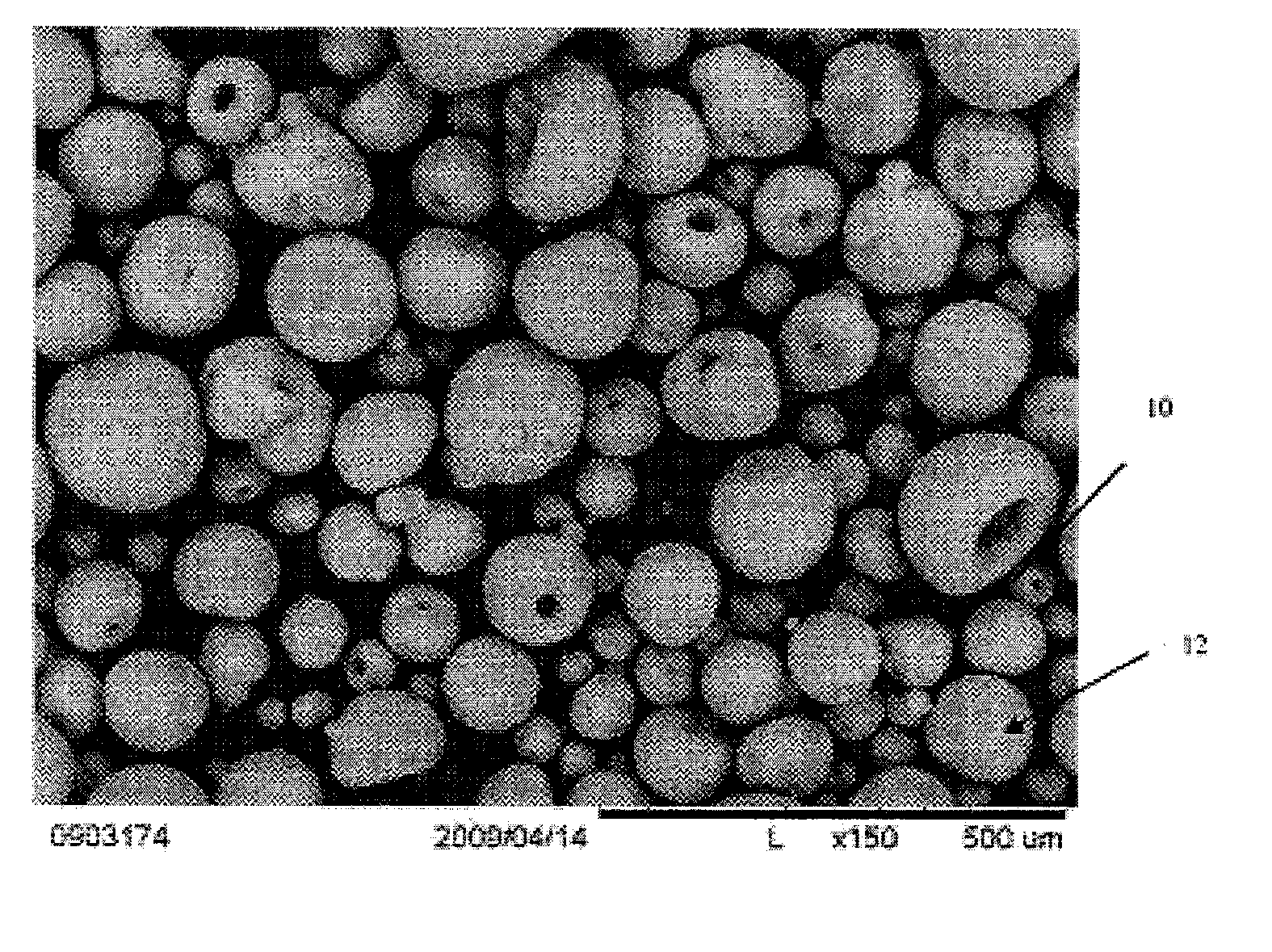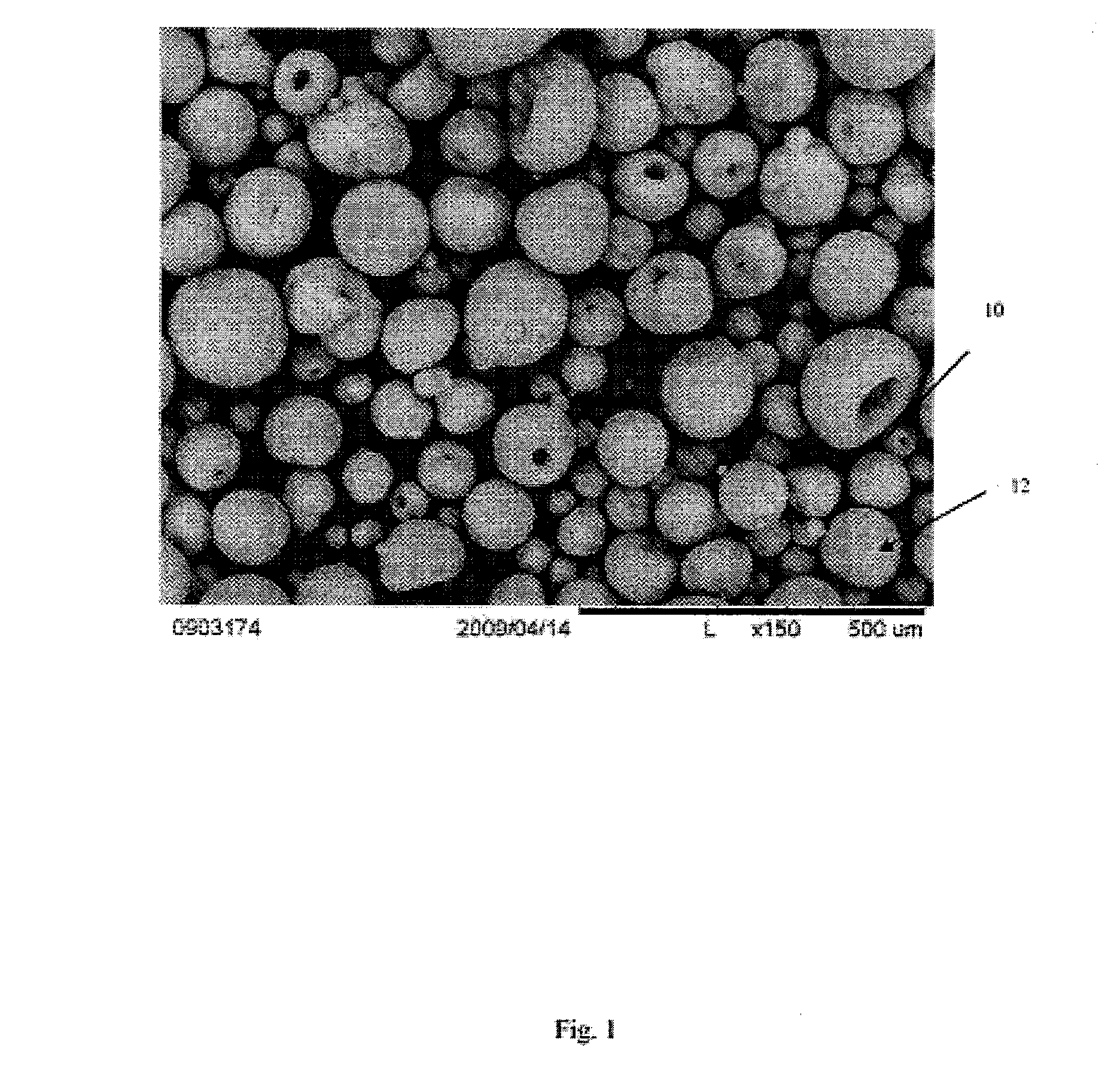Powder comprising zirconia granules
a zirconia and granule technology, applied in the field of granules, can solve the problem that the content of the first binder limits the appearance of permanent internal defects
- Summary
- Abstract
- Description
- Claims
- Application Information
AI Technical Summary
Benefits of technology
Problems solved by technology
Method used
Image
Examples
examples
[0139]The following nonlimiting examples were manufactured according to a process comprising the above stages A) to E).
[0140]Stage A) exhibits the following stages a), b) and c).
[0141]In stage a), for each of the examples carried out, the zirconia powder, the main characteristics of which appear in table 1 below, is dispersed by microgrinding The alumina of this zirconia powder advantageously acts as sintering additive.
TABLE 1Yttrium-comprising zirconia powderZrO2 (% by weight)Remainder to 100%Y2O3 (% by weight)5.3Al2O3 (ppm)2500SiO2 (ppm)100Na2O (ppm)100CaO (ppm)30Fe2O3 (ppm)10MgO (ppm)TiO2 (ppm)Specific surface (m2 / g)7D10 (μm)0.2D50 (μm)0.4D90 (μm)1.0
[0142]This microgrinding is carried out in a wet bead mill (zirconia beads comprising 3 mol% of Y2O3, with a diameter of 0.8 mm) or attrition mill. After the microgrinding, the powder exhibits a median diameter of 0.35 μm. The dry matter content of the suspension is 50% by weight.
[0143]The binders, in the form of 50% by weight solutio...
PUM
| Property | Measurement | Unit |
|---|---|---|
| Temperature | aaaaa | aaaaa |
| Fraction | aaaaa | aaaaa |
| Fraction | aaaaa | aaaaa |
Abstract
Description
Claims
Application Information
 Login to View More
Login to View More - Generate Ideas
- Intellectual Property
- Life Sciences
- Materials
- Tech Scout
- Unparalleled Data Quality
- Higher Quality Content
- 60% Fewer Hallucinations
Browse by: Latest US Patents, China's latest patents, Technical Efficacy Thesaurus, Application Domain, Technology Topic, Popular Technical Reports.
© 2025 PatSnap. All rights reserved.Legal|Privacy policy|Modern Slavery Act Transparency Statement|Sitemap|About US| Contact US: help@patsnap.com



